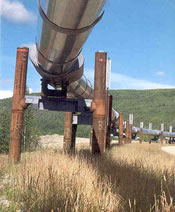Earlier this month, Royal Dutch Shell and Spain's Repsol pulled out of a proposed Iranian natural gas development project that was estimated to be worth over $10 billion. The decision by the two European energy firms to pull out of phase 13 of the South Pars project was seen as a setback for Iran's efforts to court foreign interest in its energy sector at a time when the Bush administration is actively trying to discourage it. Shell and Repsol executives did not publicly comment on their reasons for pulling out of South Pars. But whether it was due to concerns about the deal's financial viability or the result of U.S. political pressure, or both, the decision would have been welcomed by the Bush administration. This is particularly so given that a string of recent natural gas deals involving Iran has raised eyebrows in Washington, including a substantial supply agreement with Switzerland and two other deals involving Malaysia and Oman. In addition to having the second-largest oil reserves in the world, Iran also has the second largest quantity of natural gas in the world (behind only Russia), with an estimated 15 percent of global reserves. As Iranian gas reserves are relatively undeveloped, the country has much potential to become a major global supplier.
Pipeline Politics: Iran Looks to Send Natural Gas East

